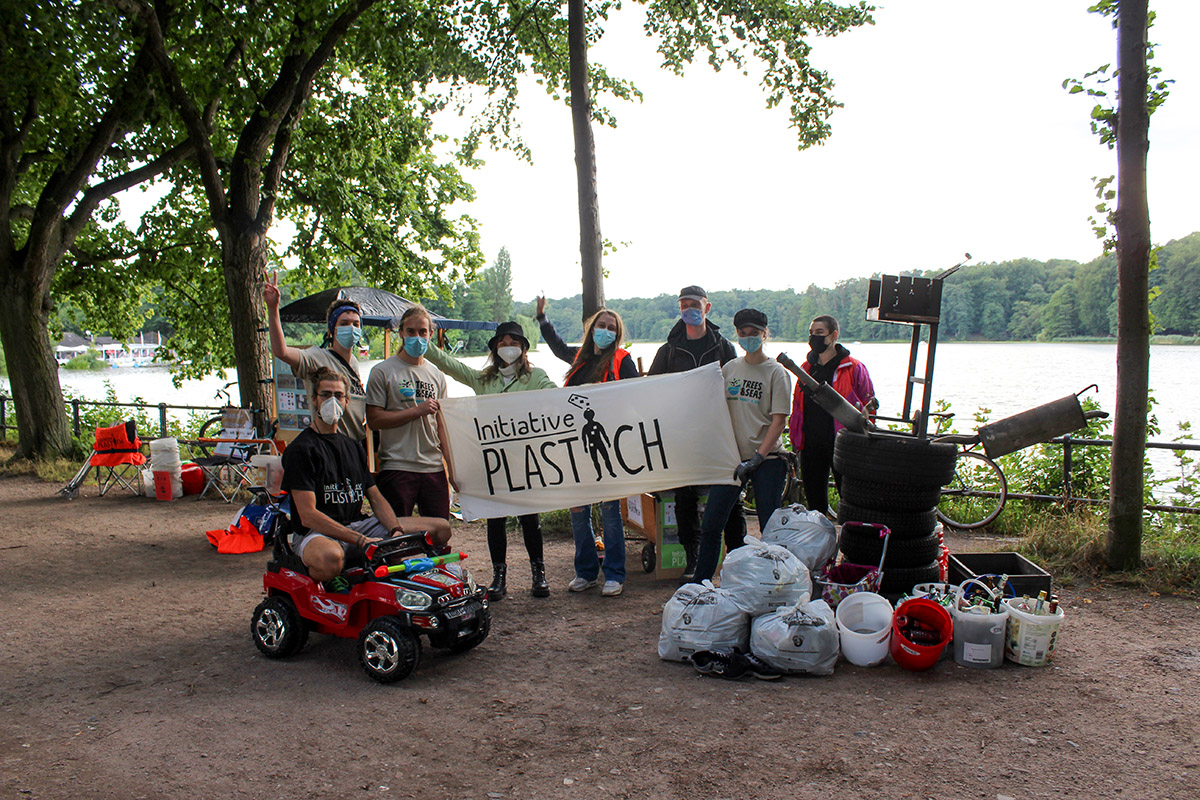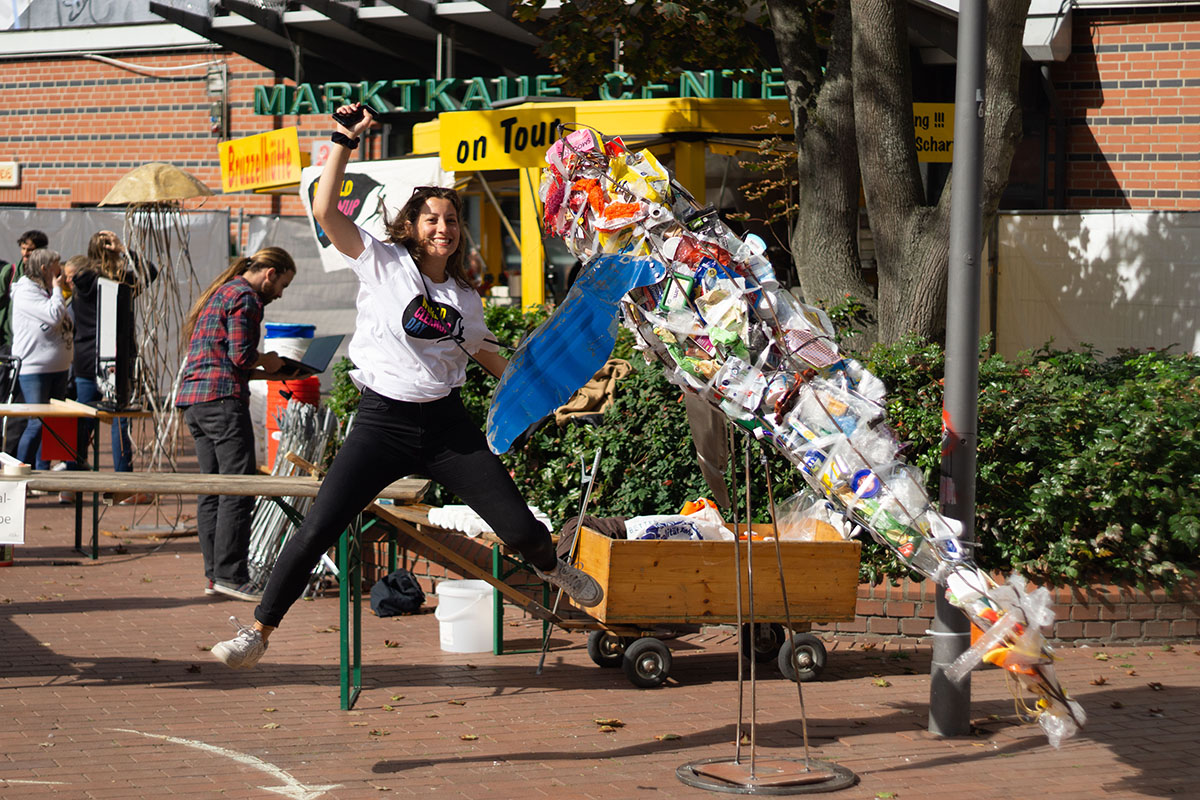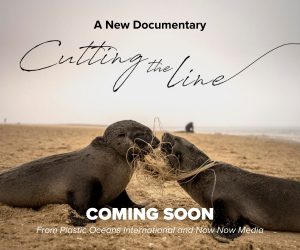An Interdisciplinary Team Providing Inclusive Solutions for All
“As soon as we all came together to talk about the plastic waste pollution crisis, we realised that our initially-planned single clean-up would not be enough.”
So tells Tolga Dirikgil of the birth and growth of Initiative Plastich in Hamburg, Germany – which also happens to be one of the newest members of Plastic Oceans International’s BlueCommunities program.
Coming to the realisation that, even miles from the coast, there was a staggering amount of work to be done to tackle the plastic pollution crisis, a team of intrepid students expanded the boundaries of their original plan, broadly defined their goals and visions, and Initiative Plastich was born.
Though their first official meeting was a mere two years ago, in the time since, the team at Initiative Plastich have snow-ploughed their way into the public consciousness of the city of Hamburg. They have successfully organised two city-wide World Cleanup Days, joined up as a BlueCommunity, and participated in the global Plastic Oceans Trees & Seas Festival, amongst a number of other cleanups, workshops, and awareness raising events.

The Initiative Plastich team during the Trees & Seas Festival.
“We reached out to Plastic Oceans shortly after our very first meeting as Initiative Plastich. Awareness is key in fighting global plastic pollution, so it was a no-brainer to connect with the rest of the globe as part of BlueCommunities, in order to reach more people with our message.”
VISIT OUR BLUECOMMUNTIES PAGE FOR HAMBURG
Those with any knowledge of the German language may have spotted the clever link between the Initiative Plastich’s name, and the personal sense of culpability for our plastic consumption that the organisation hopes to foster (ich is the German for I).
“A little fun fact, though,” Dirikgil notes: “Originally, we didn’t plan for our name to draw attention to the link between the plastic problem and ourselves as individuals. In truth, the name comes from a joke about mispronunciation with two sisters, Teresa and Franzi, who have difficulties pronouncing the soft German ‘K’ at the end of words.”

The team is always up for making their work a bit fun!
Nonetheless, the name drives at the seed of what it is that Initiative Plastich hopes to grow: their goal is, ultimately, to educate individuals at every level of the community. The plastic waste problem affects people at every level of society, therefore any small, individual change in wasteful behaviour makes a difference. Initiative Plastich therefore focuses their energies on community education; both spreading awareness of solutions to the plastic pollution crisis, and continuing to educate themselves in their work.
Dirikgil continued: “We try to encourage people to rethink how they consume plastic, in particular single-use plastics. We suggest solutions which don’t mean paying more money, so we hope that everybody can implement them into their lives.Clean-ups are great for that, because everybody who participates experiences first-hand the effects of thoughtless plastic usage. It also helps to be able to talk to other members of the community of Hamburg who are passing by – that way we can learn from other people’s experiences, and discuss possible, everyday solutions.”
Andrea Torres, Executive Director for Plastic Oceans Europe, is effusive about Initiative Plastich: “For me, the interdisciplinarity of their team is their greatest strength; as a mix of engineering, art, and social work students, the team are able not only to educate people on local plastic pollution, but also to work together to innovate technical solutions with which to deal with the problem.”
One such innovation is ‘Map the Dreck’ (German for ‘dirt’), through which pedestrians in the city are able to report dumped waste with an image uploaded to a smartphone app. An algorithm then classifies the waste according to amount, accessibility, and possible hazards, so that, once displayed in the app, members of the public can organise their own cleanup efforts. Better still, Initiative Plastich hosts a number of stations which lend the necessary tools for picking up waste, enabling decentralised, but imperative, clean-ups, which empower anybody in the city to get involved.

Initiative Plastich making a difference on World Cleanup Day.
Such a novel approach to public awareness of urban issues enables Plastich to continually and effectively manifest their desire to to include anyone who wants to get involved in their activities. And, adds Dirikgil, “we are very lucky to have a number of friends with similar interests and concerns, who are keen to assist us when there is much to do and little time in which to do it.”
Initiative Plastich has known from their genesis what so many are now coming to understand about the environmental crisis: it is essential that we act in the minute to make a difference for the global future.
Change – so the saying goes – starts now.
With the likes of Initiative Plastich showing the way, it already has.
Shannon Collins is lead environmental writer at Ninth Wave Global and covers the environment and southern Mexico for Mexico News Daily. She also writes feature pieces for a variety of international media platforms.


Trackback: Cornhole bags near me
Trackback: Huaylike
Trackback: Dark net
Trackback: sex women
Trackback: burnout